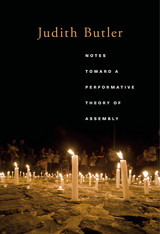
Twenty-one wounded survivors and relatives of the dead describe the campaign which led to the establishment of the Inquiry under Lord Saville. They reveal their bitterness at the 'whitewash' of the first inquiry under Lord Chief Justice Widgery, and describe the frustrations and elations of their long struggle to force the British Government to launch a new search for the truth.
The relatives comment sharply on Saville¹s performance, and on the attitudes of British and Irish politicians, the media and an array of celebrity lawyers. They reflect on whether soldiers and leading politicians should now be prosecuted for murder, and discuss whether the outcome of the Inquiry is likely to hinder or enhance the peace process. Will the truth about Bloody Sunday raise more ghosts than it sets to rest?
This is the story of the longest legal proceedings in British or Irish history in the raw words of those most intimately involved. What they have to say puts a new focus on the significance of State atrocities in shaping perceptions of the past and aspirations for the future in Ireland.
The interviews with relatives and survivors have been edited by Eamonn McCann, a Derry journalist and political activist who took part in the 1972 march and now chairs the Bloody Sunday Trust.

In a dazzling new interpretation of four hundred years of modern French history, Charles Tilly focuses not on kings and courtiers but on the common people of village and farm buffeted by the inexorable advance of large-scale capitalism and the consolidation of a powerful nation-state. Tilly, author of The Vendée and many other books, chooses the contention of the masses as his medium in painting this vivid picture of the people's growing ability and willingness to fight injustice, challenge exploitation, and claim their own place in the hierarchy of power.
Contention is not necessarily disorder. The more we look at contention, says Tilly, the more we discover order created by the rooting of collective action in everyday social life through a continuous process of signaling, negotiation, and struggle. In seventeenth-century France, ordinary people did not know how to demonstrate, rally, or strike, but they had standard procedures for expelling a tax collector, undermining a corrupt official, and shaming moral offenders. By the end of the eighteenth century, French people were experimenting with delegations, public meetings, and popular justice. Through the nineteenth century, with the growth of an industrial proletariat, they developed an extensive repertoire of strikes, demonstrations, and direct attacks on landlords and capitalists, as well as conflicts setting worker against worker. In the twentieth century, scenarios of protest expanded to even larger-scale forms such as mass meetings, electoral campaigns, and broad-based social movements.
Rather than arguing these developments in the abstract, The Contentious French provides lively descriptions of real events, with pauses to make sense of their patterns. The result is a view of politics with the common struggle for power at its core and the changing structure of power as its envelope.
The Contentious French is bound to be controversial, and therefore required reading for specialists in European history, social movements, and collective action. Its fresh approach will also appeal to students and general readers.

Public protests are a vital tool for asserting grievances and creating temporary, yet tangible, communities as the world becomes more democratic and urban in the twenty-first century. While the political and social aspects of protest have been extensively studied, little attention has been paid to the physical spaces in which protests happen. Yet place is a crucial aspect of protests, influencing the dynamics and engagement patterns among participants. In The Design of Protest, Tali Hatuka offers the first extensive discussion of the act of protest as a design: that is, a planned event in a space whose physical geometry and symbolic meaning are used and appropriated by its organizers, who aim to challenge socio-spatial distance between political institutions and the people they should serve.
Presenting case studies from around the world, including Tiananmen Square in Beijing; the National Mall in Washington, DC; Rabin Square in Tel Aviv; and the Plaza de Mayo in Buenos Aires, Hatuka identifies three major dimensions of public protests: the process of planning the protest in a particular place; the choice of spatial choreography of the event, including the value and meaning of specific tactics; and the challenges of performing contemporary protests in public space in a fragmented, complex, and conflicted world. Numerous photographs, detailed diagrams, and plans complement the case studies, which draw upon interviews with city officials, urban planners, and protesters themselves.



A Times Higher Education Book of the Week
Judith Butler elucidates the dynamics of public assembly under prevailing economic and political conditions, analyzing what they signify and how.
Understanding assemblies as plural forms of performative action, Butler extends her theory of performativity to argue that precarity—the destruction of the conditions of livability—has been a galvanizing force and theme in today’s highly visible protests.
“Butler’s book is everything that a book about our planet in the 21st century should be. It does not turn its back on the circumstances of the material world or give any succour to those who wish to view the present (and the future) through the lens of fantasies about the transformative possibilities offered by conventional politics Butler demonstrates a clear engagement with an aspect of the world that is becoming in many political contexts almost illicit to discuss: the idea that capitalism, certainly in its neoliberal form, is failing to provide a liveable life for the majority of human beings.”
—Mary Evans, Times Higher Education
“A heady immersion into the thought of one of today’s most profound philosophers of action…This is a call for a truly transformative politics, and its relevance to the fraught struggles taking place in today’s streets and public spaces around the world cannot be denied.”
—Hans Rollman, PopMatters

READERS
Browse our collection.
PUBLISHERS
See BiblioVault's publisher services.
STUDENT SERVICES
Files for college accessibility offices.
UChicago Accessibility Resources
home | accessibility | search | about | contact us
BiblioVault ® 2001 - 2024
The University of Chicago Press









